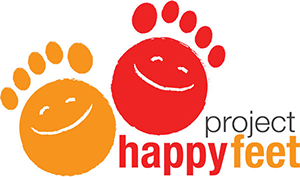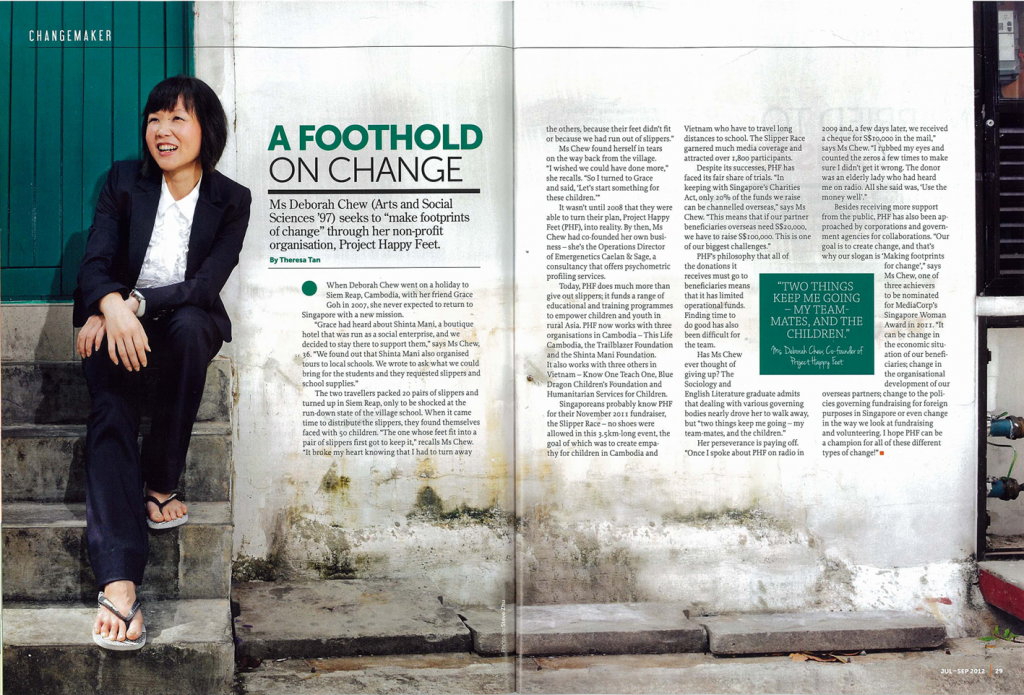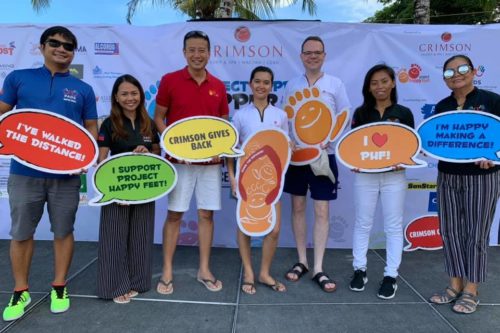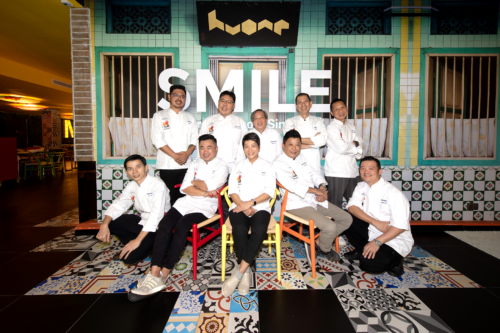Co-founder and Director of Project Happy Feet Ms Deborah Chew, who is an alumna of National University of Singapore was recently featured in the Changemaker segment of AlumNUS (July – September 2012 issue), a quarterly magazine that goes out to the alumni. Read the article by Ms Theresa Tan below!
Project Happy Feet would like to thank National University of Singapore Office of Alumni Relations for the feature.
When Deborah Chew went on a holiday to Siem Reap, Cambodia, with her friend Grace Chia in 2007, she never expected to return to Singapore with a new mission.
“Grace had heard about Shinta Mani, a boutique hotel that was run as a social enterprise, and we decided to stay there to support them,” says Ms Chew, 36. “We found out that Shinta Mani also organized tours to local schools. We wrote to ask what we could bring for the students and they requested slippers and school supplies.”
The two travelers packed 20 pairs of slippers and turned up in Siem Reap, only to be shocked at the run-down state of the village school. When it came time to distribute the slippers, they found themselves faced with 50 children. “The one whose feet fit into a pair of slippers first got to keep it,” recalls Ms Chew. “It broke my heart knowing that I had to turn away the others, because their feet didn’t fit or because we had run out of slippers.”
Ms Chew found herself in tears on the way back from the village. “I wished we could have done more,” she recalls. “So I turned to Grace and said, ‘Let’s start something for these children.’”
It wasn’t until 2008 that they were able to turn their plan, Project Happy Feet (PHF), into reality. By then, Ms Chew had co-founded her own business- she’s the Operations Director of Emergenetics Caelan & Sage, a consultancy that offers psychometric profiling services.
Today, PHF does much more than give out slippers; it funds a range of educational and training programmes to empower children and youth in rural Asia. PHF now works with three organizations in Cambodia, the Trailblazer Foundation and the Shinta Mani Foundation. It also works with three others in Vietnam-Know One Teach One, Blue Dragon Children’s Foundation and Humanitarian Services for Children.
Singaporeans probably know PHF for their November 2011 fundraiser, the Slipper Race-no shoes were allowed in this 3.5km long event, the goal of which was to create empathy for children in Cambodia and Vietnam who have to travel long distances to school. The Slipper Race garnered much media coverage and attracted over 1,800 participants.
Despite its successes, PHF has faced its fair share of trials. “In keeping with Singapore’s Charities Act, only 20% of the funds we raise can be channeled overseas,” says Ms Chew, “This means that if our partner beneficiaries overseas need S$20,000, we have to raise S$100,000. This is one of our biggest challenges.”
PHF’s philosophy that all of the donations it receives must go to beneficiaries means that it has limited operational funds. Finding time to do good has also been difficult for the team.
Has Ms Chew ever thought of giving up? The Sociology and English Literature graduate admits that dealing with various governing bodies nearly drove her to walk away, but “two things keep me going- my team-mates, and the children.”
Her perseverance is paying off. “Once I spoke about PHF on radio in 2009 and, a few days later, we received a cheque for S$10,000 in the mail,” says Ms Chew, “I rubbed my eyes and counted the zeros a few times to make sure I didn’t get it wrong. The donor was an elderly lady who had heard me on the radio. All she said was “Use the money well.”
Besides receiving more support from the public, PHF has also been approached by corporations and government agencies for collaborations. “Our goal is to create change, and that’s why our slogan is ‘Making footprints of change’,” says Ms Chew, one of three achievers to be nominated for MediaCorp’s Singapore Woman Award in 2011. “It can be change in the economic situation of our beneficiaries; change in the organizational development of our overseas partners; change to the policies governing fundraising for foreign purposes in Singapore or even change in the way we look at fundraising and volunteering. I hope PHF can be a champion for all of these different types of changes!”






